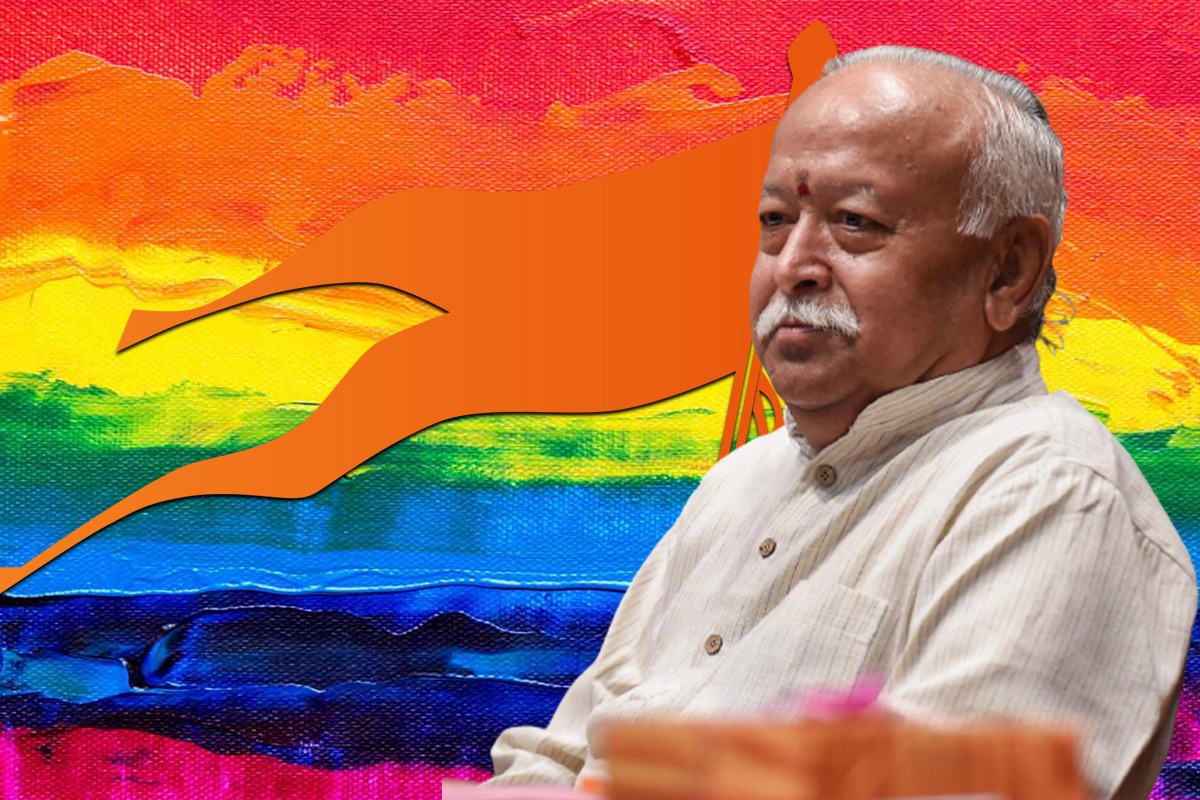The inalienable right to a dignified life is guaranteed by the constitution of India. It is guaranteed to the LGBTQ community too. Then why does RSS chief Mohan Bhagwat’s opinion on the same thing trigger a conversation among Indian intelligentsia? First of all, Bhagwat’s statement should be applauded at face value as it is in line with both science and progressive politics. The New Indian (TNI) welcomes it.
It is also admirable that Bhagwat attempted to bring both science and faith together to normalize and contextualize homosexual relationships for Indians. This is essential because Indian society continues to be deeply spiritual and religious even as it is open to the advancement of science and technology simultaneously. While educated Indians may be convinced by his scientific argument, many in India may need religious validation as well. On that count, Bhagwat has struck the right chord.
The RSS chief’s advocacy of the “humane approach” towards homosexuals also indicates that the Sangh, is not only sensitive towards the younger generations raised in post-liberalised India but is open to reviewing its own positions as well, for the welfare of the nation. But at the same time, Bhagwat’s emphasis on “private space” for homosexuals, makes it quite clear that the RSS as a socio-cultural organisation finds ostentatious displays of sexuality in the public space quite unproductive. Advocating for protection from biased and prejudiced behaviour is not the same as participating in a pride parade, from their perspective. To be fair, the RSS has never made a comment that can be seen as palpably threatening to the physical existence or well-being of homosexuals.
Clearly, Bhagwat is not catering to the wear-your-sexuality-on-your-sleeves brigade for whom sexuality is not merely a proclivity but a political stand. ‘Queerness’ is less about what goes in the bedroom and more about what is allowed in the public space. It is a political war against heteronormative behaviour and privileges. LGBTQ rights activists demand mainstream space, not merely the freedom to be left alone. They want the same rights as guaranteed to heteronormative relationships. Marriage, insurance, inheritance, ease to adopt a child etc are all tied to marital rights. But Indian society is far from having those conversations.
Bhagwat’s utterances do not really change anything for the LGBTQ community who wants these political and societal privileges. And the LGBTQ community isn’t looking for validation from Bhagwat either, because he doesn’t hold any Parliamentary or judicial position. So, who is Bhagwat’s audience when he talks about LGBTQ rights and what is its significance?
First, it seems he is addressing the regular Indian citizen, who may be part of shakhas, and other such RSS or Hindu right-wing affiliated groups and play a significant role in being carriers of the Hindutva narrative – be it in their communities or on social media. As the fountainhead of Hindutva, the RSS chief’s utterances shape the ideological positioning of the new passionate young political Hindus. He is providing a more rounded and plausible argument to younger Hindus who are far more outspoken than the older generations and out there arguing in defence of Indic values.
Second, by endorsing homosexual relationships as natural in one fell swoop Bhagwat dispels every left-liberal activist’s irrational and motivated claim that the RSS is “Hindu Taliban”. When the RSS chief uses science and Indian mythology to legitimise homosexual relationships, he is challenging the Left’s apologia for the societies which criminalise homosexuality. In effect, he is promoting the idea that Hindus ought to be more humane and more rational at the same time, as against the communities which are resisting change and reformation.










